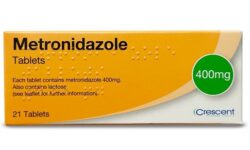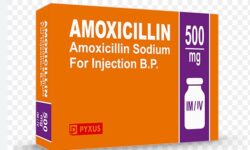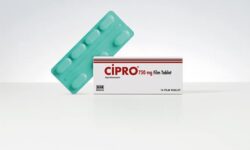Benefits of Honey
Introduction: The natural world is filled with incredible remedies for our well-being, and one such elixir that has long been revered is honey. Known for its numerous health benefits, honey has been used for centuries to boost immunity, promote digestive health, soothe coughs and sore throats, and enhance the health of our skin. In this blog post, we delve into the wonders of honey, exploring how it can play a vital role in maintaining our overall health and well-being. Whether you’re looking to strengthen your immune system, improve digestion, alleviate discomfort, or achieve radiant skin, honey might just be the golden answer you’ve been seeking.
Boosting Immunity With Honey
Honey has long been recognized for its many health benefits, including its ability to boost immunity. Boosting immunity with honey is not a new concept, as it has been used for centuries in traditional medicine practices. The natural properties of honey make it an effective tool in strengthening the immune system and protecting the body against various infections and diseases.
One of the key components of honey that contributes to its immune-boosting abilities is its high concentration of antioxidants. Antioxidants play a crucial role in neutralizing free radicals in the body, which can cause damage to cells and weaken the immune system. By consuming honey regularly, you can provide your body with a steady supply of antioxidants, helping to strengthen your immune defenses.
In addition to its antioxidant content, honey also possesses antimicrobial properties. This means that it can inhibit the growth of harmful bacteria and viruses in the body, preventing infections and promoting overall health. The antimicrobial activity of honey is attributed to its low moisture content and acidic pH, which create an inhospitable environment for these pathogens to thrive.
- Honey is rich in vitamins and minerals that are essential for maintaining a strong immune system. These include vitamin C, vitamin B6, iron, and zinc.
- Regular consumption of honey can help reduce inflammation in the body, as it contains compounds that have anti-inflammatory effects.
- Honey can be used as a natural remedy for soothing sore throats and coughs, providing relief from symptoms and aiding in the healing process.
| Benefits of Honey for Immunity: |
|---|
| 1. Boosts the immune system with its antioxidant content. |
| 2. Possesses antimicrobial properties that help prevent infections. |
| 3. Provides essential vitamins and minerals for a strong immune system. |
| 4. Reduces inflammation in the body. |
| 5. Soothes sore throats and coughs. |
It is important to note that not all honey is created equal when it comes to its immune-boosting properties. Raw, unprocessed honey is the best choice as it retains the maximum amount of antioxidants and beneficial compounds. When purchasing honey, look for labels that indicate it is raw and preferably organic.
Incorporating honey into your daily routine is a simple and delicious way to support your immune system. Whether enjoyed on its own, added to beverages or used as a natural sweetener in recipes, honey can play a valuable role in boosting your immunity and keeping you healthy.
Promoting Digestive Health With Honey
Honey is not only a sweet treat but also a natural remedy that can promote digestive health. The benefits of honey on the digestive system are well-documented and have been recognized for centuries. One of the key benefits of honey is its ability to soothe and heal the digestive tract. The antimicrobial properties of honey can help to eliminate harmful bacteria in the gut, promoting a healthy balance of microorganisms. Additionally, honey can help to reduce inflammation in the digestive system, providing relief from conditions such as gastritis and ulcers.
Honey is also known for its prebiotic properties, which means it can serve as a food source for beneficial bacteria in the gut. This can help to nourish and support the growth of healthy gut flora, improving overall digestive health. Research has shown that consuming honey can increase the levels of beneficial bacteria, such as lactobacilli and bifidobacteria, in the gut. These bacteria play a crucial role in maintaining digestive health and can help to improve digestion and nutrient absorption.
Another way in which honey promotes digestive health is by acting as a natural laxative. The high sugar content of honey can draw water into the intestines, softening the stool and promoting regular bowel movements. This can be particularly beneficial for individuals who suffer from occasional constipation or irregularity. Moreover, honey is rich in enzymes that can aid in the digestion of food, allowing for better nutrient absorption.
| Benefits of Honey for Digestive Health |
|---|
| Honey soothes and heals the digestive tract |
| Honey has antimicrobial properties that eliminate harmful bacteria |
| Honey acts as a prebiotic, supporting the growth of beneficial gut bacteria |
| Honey acts as a natural laxative, promoting regular bowel movements |
| Honey contains enzymes that aid in digestion and improve nutrient absorption |
In conclusion, honey can be a valuable addition to a healthy diet for promoting digestive health. Its soothing and healing properties, antimicrobial effects, prebiotic nature, and natural laxative properties make it a versatile remedy for various digestive conditions. Incorporating honey into your daily routine can provide numerous benefits and contribute to improved overall well-being.
Soothing Cough And Sore Throat With Honey
The common cold, flu, and other respiratory infections can often leave us with a nagging cough and a sore throat. We search for ways to find relief, and one natural remedy that has been trusted for centuries is honey. Not only does honey provide a sweet taste to our favorite beverages and foods, but it also offers numerous health benefits, particularly in soothing cough and sore throat symptoms.
One of the primary benefits of using honey to alleviate cough and sore throat is its antibacterial properties. Honey contains various natural compounds that have been found to inhibit the growth of bacteria, including those that cause respiratory infections. These antibacterial properties help to reduce inflammation in the throat, reduce mucus production, and alleviate coughing.
In addition to its antibacterial properties, honey also acts as a cough suppressant. The thick consistency of honey coats the throat, creating a soothing effect that reduces irritation and helps to alleviate coughing. Studies have shown that not only does honey provide short-term relief, but it can also be as effective as over-the-counter cough medicines.
| Benefit | Description |
|---|---|
| Antibacterial | Honey inhibits the growth of bacteria, reducing inflammation and mucus production. |
| Cough Suppressant | The thick consistency of honey coats the throat, soothing irritation and reducing coughing. |
| Natural Remedy | Unlike over-the-counter cough medicines, honey is a natural and safe alternative. |
It’s important to note that not all honey is created equal when it comes to soothing a cough and sore throat. Raw, unfiltered honey is the best choice as it retains the maximum amount of beneficial compounds. It’s also recommended to choose honey with darker shades, as they typically have higher antioxidant levels and stronger therapeutic effects.
So the next time you find yourself battling a persistent cough or a sore throat, reach for that jar of honey in your pantry. Its antibacterial properties, cough-suppressing abilities, and natural ingredients make it a wonderful choice for soothing these discomforts. Remember to choose raw, unfiltered honey for maximum benefits, and enjoy the sweet relief it brings.
Enhancing Skin Health With Honey
Honey has been used for centuries in various cultures for its numerous health benefits. One area where honey has shown particularly promising results is in enhancing skin health. The natural properties of honey make it an excellent ingredient to incorporate into your skincare routine.
Firstly, honey is known for its moisturizing properties. It is a natural humectant, which means it attracts and retains moisture. Applying honey to your skin can help lock in hydration, keeping your skin soft and supple. Additionally, honey contains antioxidants that help protect the skin against damage caused by free radicals. This can help reduce the signs of aging and promote a youthful appearance.
Furthermore, honey has antibacterial properties, making it beneficial for those with acne-prone skin. The antibacterial agents in honey can help inhibit the growth of bacteria that can contribute to acne breakouts. Additionally, honey has anti-inflammatory properties, which can help calm and soothe irritated or inflamed skin.
- Benefits of Honey:
- Moisturizing properties
- Antioxidant protection
- Antibacterial benefits
- Anti-inflammatory effects
| Type of Honey | Properties |
|---|---|
| Raw Honey | Contains beneficial enzymes and antioxidants |
| Manuka Honey | Has potent antibacterial properties |
| Acacia Honey | Gentle and suitable for sensitive skin |
When using honey for skincare, it is important to choose the right type of honey. Raw honey, in its purest form, contains beneficial enzymes and antioxidants that are most effective for skin health. Manuka honey, derived from the manuka plant, is highly regarded for its potent antibacterial properties and is commonly used to treat acne. Acacia honey, on the other hand, is gentle and suitable for sensitive skin.
Incorporating honey into your skincare routine is simple. You can create a DIY face mask by mixing honey with other ingredients like yogurt or oatmeal. This can help soothe and hydrate your skin while providing additional benefits. Alternatively, many skincare products on the market now include honey as a key ingredient. Look for products that contain honey extract or honey-infused formulations.
In conclusion, honey has numerous benefits for enhancing skin health. Its moisturizing properties, antioxidant protection, antibacterial benefits, and anti-inflammatory effects make it a valuable ingredient in skincare. Whether you choose to use honey in DIY treatments or opt for honey-infused products, incorporating honey into your skincare routine can help promote a healthy and radiant complexion.
Frequently Asked Questions
Q: How can honey boost immunity?
Honey contains antioxidants and antibacterial properties that help strengthen the immune system and protect against infections.
Q: How does honey promote digestive health?
Honey aids in digestion by neutralizing stomach acids, promoting the growth of beneficial gut bacteria, and soothing the digestive tract.
Q: Can honey soothe cough and sore throat?
Yes, honey has natural cough-suppressant and soothing properties that can help alleviate cough and soothe a sore throat.
Q: How can honey enhance skin health?
Honey has moisturizing, antibacterial, and antioxidant properties that can help hydrate the skin, prevent acne, and promote a youthful appearance.
Q: Is honey beneficial for cold and flu symptoms?
Yes, honey can provide relief from cold and flu symptoms such as coughing, congestion, and sore throat due to its soothing and immune-boosting properties.
Q: Can honey be used externally for skincare?
Absolutely! Honey can be used in face masks, scrubs, and moisturizers to nourish the skin, improve complexion, and treat various skin conditions.
Q: What type of honey is best for reaping these benefits?
Raw, unprocessed honey is considered the best choice as it retains all the natural enzymes, antioxidants, and nutrients that provide the desired health benefits.



